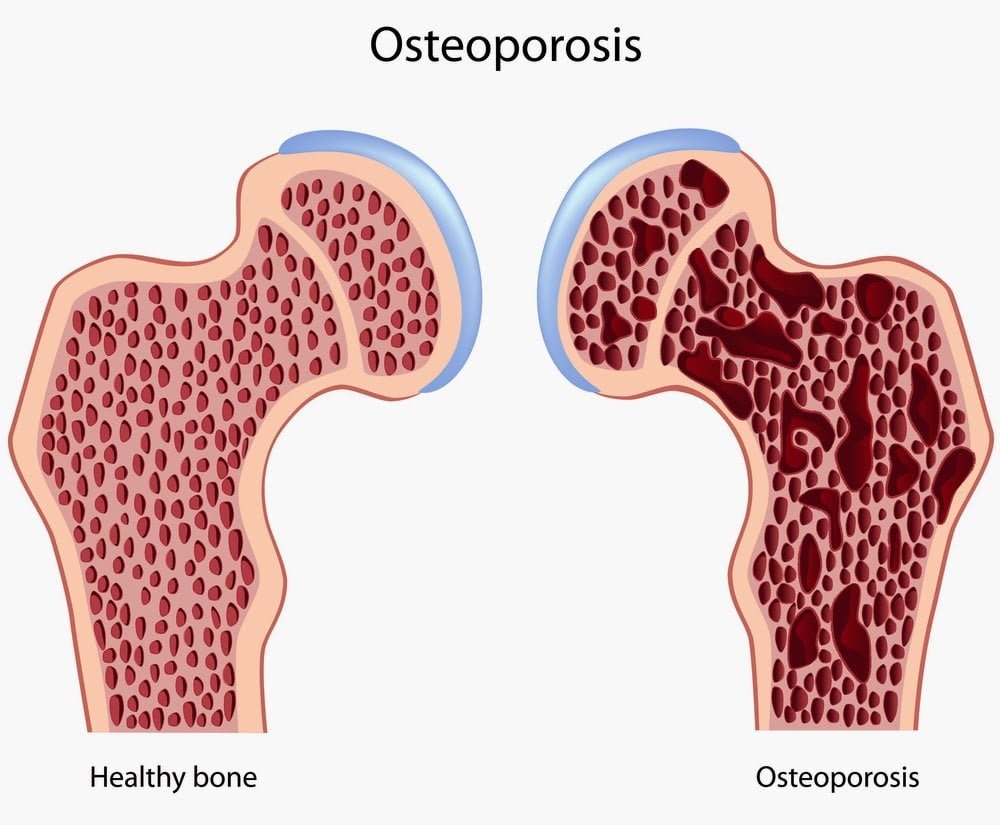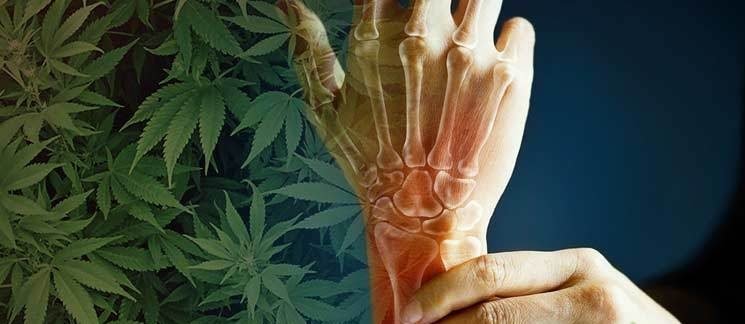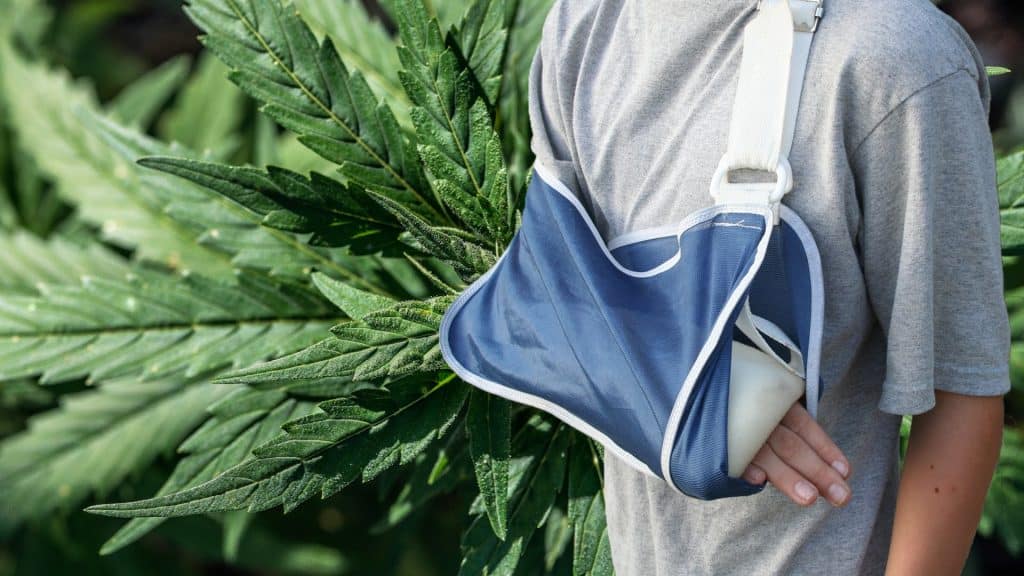Blog
CBD and Bone Health: Exploring Its Effects on Osteoporosis and Bone Healing
When it comes to maintaining optimal health, our bones play a crucial role. Strong and healthy bones provide structural support, protect vital organs, and allow us to move freely. However, conditions like osteoporosis and bone fractures can significantly impact our bone health. In recent years, there has been growing interest in the potential benefits of CBD (cannabidiol) for bone health. CBD, a non-psychoactive compound derived from the cannabis plant, has shown promise in its effects on bone density, osteoporosis prevention, and bone healing. In this article, we will explore the relationship between CBD and bone health, examining the scientific evidence and potential mechanisms behind its effects.
Understanding Osteoporosis: A Silent Threat to Bone Health

Osteoporosis, often referred to as the “silent disease,” is a condition that gradually weakens and deteriorates bone density, leading to fragile and brittle bones. It is primarily prevalent among older adults, especially women after menopause. Osteoporosis is a significant concern because it increases the risk of fractures, which can have a profound impact on mobility and overall quality of life.
The bones in our bodies are dynamic living tissues that undergo a continuous process of remodeling. This remodeling process involves the breakdown of old bone tissue and the formation of new bone tissue. However, in individuals with osteoporosis, the balance between bone formation and bone resorption is disrupted, resulting in a net loss of bone density over time.
Several factors contribute to the development of osteoporosis. One primary factor is the decline in estrogen levels that occurs during menopause in women. Estrogen plays a crucial role in maintaining bone density, so hormonal changes during menopause can accelerate bone loss. Other risk factors for osteoporosis include aging, a family history of the disease, low calcium and vitamin D intake, a sedentary lifestyle, smoking, excessive alcohol consumption, and certain medical conditions and medications.
The consequences of osteoporosis can be severe. Weakened bones are more susceptible to fractures, and even minor falls or bumps can lead to significant injuries. Fractures commonly occur in the hip, spine, and wrist, and they can result in chronic pain, decreased mobility, loss of independence, and reduced quality of life.
It is crucial to address osteoporosis through effective interventions that focus on prevention and management. Lifestyle modifications play a key role in maintaining bone health. Regular weight-bearing and muscle-strengthening exercises can help to build and maintain bone density. Adequate calcium and vitamin D intake are essential for bone health, and it may be necessary to supplement these nutrients when dietary intake is insufficient.
In some cases, medication may be prescribed to slow down bone loss or promote bone formation. Bone density screenings can help in identifying individuals at risk for osteoporosis and enable early intervention. Education and awareness about the importance of bone health are also essential, as prevention and early detection can significantly reduce the impact of osteoporosis.
By understanding the causes and consequences of osteoporosis, we can take proactive steps to prevent and manage this silent threat to bone health. Through lifestyle modifications, appropriate medical interventions, and regular screenings, we can protect our bones and maintain their strength, ensuring a better quality of life as we age.
The Potential of CBD for Osteoporosis Prevention
In recent years, researchers have been investigating the potential of CBD (cannabidiol) for preventing osteoporosis and preserving bone health. CBD interacts with the endocannabinoid system (ECS) in our bodies, which is known to play a crucial role in regulating bone metabolism. Animal studies have shown promising results, suggesting that CBD may have beneficial effects on bone health. One of the key findings is that CBD can stimulate bone formation, which is essential for maintaining strong and healthy bones. Additionally, CBD has been found to inhibit bone loss, potentially preventing the gradual decline in bone density that characterizes osteoporosis. Furthermore, CBD’s anti-inflammatory properties may contribute to its potential benefits in reducing bone loss. Inflammation is closely linked to bone resorption, and by mitigating inflammation, CBD may help protect against the deterioration of bone tissue. While further research is needed to fully understand the mechanisms and efficacy of CBD in osteoporosis prevention, the existing scientific evidence is encouraging, pointing to CBD as a potential natural therapeutic option for maintaining bone health.
CBD and Bone Healing: Accelerating Recovery

Fractures and injuries to the skeletal system can be painful and take a considerable amount of time to heal. That’s why researchers have turned their attention to the potential benefits of CBD in the process of bone healing. Preliminary studies have shown promising results, suggesting that CBD may play a role in accelerating the recovery of bone injuries. One way CBD may contribute to bone healing is by promoting bone cell growth. CBD has been found to stimulate osteoblasts, the cells responsible for bone formation, thereby potentially enhancing the regenerative process. Additionally, CBD’s anti-inflammatory properties can help reduce inflammation at the site of injury, creating a more favorable environment for healing. Moreover, CBD’s analgesic properties may provide pain relief, which is crucial for individuals recovering from fractures. By alleviating pain, CBD can improve comfort during the recovery period, allowing individuals to engage in necessary physical therapy and regain mobility more effectively. While more research is needed to fully understand the mechanisms behind CBD’s effects on bone healing, these preliminary findings hold promise for the development of future treatments and interventions. Continued exploration of CBD’s potential applications in bone healing may lead to innovative approaches that enhance recovery outcomes and improve the overall well-being of individuals with bone injuries.
Navigating the Use of CBD for Bone Health: Considerations and Recommendations
While the potential benefits of CBD for bone health are captivating, it’s crucial to exercise caution and seek guidance from healthcare professionals before incorporating CBD into your regimen. As with any supplement or medication, CBD products can vary in quality, concentration, and formulation. It’s essential to choose reputable brands that provide third-party lab testing to ensure purity and potency. Moreover, considering potential interactions with other medications is crucial, as CBD may affect the metabolism of certain drugs. Consulting with a healthcare professional who is knowledgeable about CBD and its potential interactions is highly recommended.
When exploring CBD for bone health, it’s important to start with a low dosage and gradually increase it as needed while monitoring its effects. This allows you to gauge your response and adjust accordingly. Keep in mind that CBD affects individuals differently, and what works for one person may not work the same for another.
It’s important to consider your overall health status and any underlying medical conditions. Certain health conditions, such as liver disease or pregnancy, may warrant caution or avoidance of CBD use. Your healthcare provider can provide personalized guidance based on your specific circumstances.
It’s crucial to note that CBD is not a substitute for conventional medical treatments. While it shows promise in supporting bone health, it should be seen as a complementary approach rather than a standalone solution. It’s important to continue implementing other proven strategies for bone health, such as a balanced diet rich in calcium and vitamin D, regular exercise, and lifestyle modifications.
While CBD holds the potential for promoting bone health, it’s imperative to approach its use responsibly and with proper guidance. Seek advice from healthcare professionals who can provide tailored recommendations based on your individual needs and health status. By making informed decisions and exercising caution, you can navigate the use of CBD for bone health and potentially reap its benefits while prioritizing your overall well-being.
Unlocking the Potential: CBD and Bone Health
CBD’s potential effects on bone health, including osteoporosis prevention and bone healing, have sparked considerable interest in the scientific community. While research is still in its early stages, the findings thus far indicate promising avenues for further investigation. CBD’s interaction with the endocannabinoid system and its anti-inflammatory properties make it an intriguing candidate for promoting bone health. As the understanding of CBD and its effects on bone health continues to evolve, it’s crucial to approach its use responsibly and in consultation with healthcare professionals. With further research and exploration, CBD may pave the way for new possibilities in maintaining and improving bone health.


